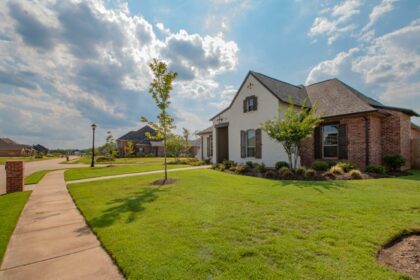
INTRODUCTION
In every sale of immovable property, transfer duty or VAT is payable. However, in transactions where the seller is registered for Value Added Tax (VAT) then VAT may be payable. VAT is an indirect tax that is leviable on the supply of goods and services by a registered VAT vendor (Vendor). Output tax is levied at 15% of the selling price of every taxable supply of goods or services made by the vendor in the course or furtherance of its business. Input tax is incurred by the vendor when paying for goods or services in the course or furtherance of its business.
A supply can be a sale, rental agreement, installment credit agreement, and all other forms of supply (as set out in the Act). If the supply is made in the course or furtherance of the business then VAT is payable on the transaction.
EXEMPT SUPPLIES
A vendor may not charge output tax on exempt supplies nor deduct any input tax if an expense is incurred to make exempt supplies or for any other non-taxable purpose. An exempt supply for instance is the supply of residential accommodation (“dwelling”) by way of a lease agreement. Therefore, a vendor who supplies exempt supplies cannot levy output tax and cannot deduct the input tax in the process of making those exempt supplies.
Consequently, as a general rule and subject to exceptions, the vendor who is selling a dwelling, used as a residential property, cannot charge output tax on the sale of the property. The buyer must pay transfer duty. The Sellers accountant must be consulted to determine if any of the exceptions apply.
WHEN DOES VAT APPLY TO THE SALE OF PROPERTY?
The general rule is that a vendor may only levy output tax on the sale of the property if the property was used by the vendor in the course or furtherance of its business, for example where the seller supplied commercial accommodation inclusive of goods and services. For example, a vendor running a guesthouse bed and breakfast would be required to levy output tax on the sale of its guesthouse property because the property was used in the course of its business or the sale is in furtherance of its business.
The sale of a dwelling, “used as a residential property” owned by a vendor is subject to transfer duty because output tax cannot be levied on the sale price as the use of the property was not in the course or furtherance of its business. Only a vendor who supplies (leases or sells) commercial accommodation inclusive of goods and services can charge output tax on the sale price. For example, if a vendor owns a student accommodation business, the sale of the property is not subject to VAT. Only if the vendor provides the students accommodation inclusive of goods and services, such as cleaning their rooms, air conditioning, television, cooking meals, and a laundry service at one inclusive fee, then the sale of the student accommodation property is subject to VAT.
THE SUPPLY OF COMMERCIAL ACCOMMODATION
The VAT Act defines commercial accommodation as, “lodging, or board in a building; house or other structure”. Commercial accommodation must include the supply of domestic goods and services, such as cleaning, maintenance, electricity, air conditioning, television, meals, and a laundry service. The supply must be regularly and systematically supplied and the yearly receipts must exceed R120,000.00 in a 12-month period.
CONCLUSION
The way in which the property has been used can have a fundamental impact on whether or not the sale of the property is subject to transfer duty or VAT. The parties to the sale of the property must consider whether the seller is a registered vendor and if the property was used as a commercial accommodation inclusive of goods and services alternatively the sale of the property would be in the furtherance of the vendors business.
This article is a general guide, and specific tax advice should be sought in each situation from a tax consultant.

